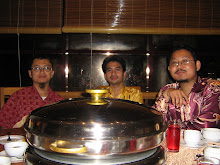You may agree or disagree with this or that person about who's the difficult person and who is not. 10 specific behavior paterns have been identified that sane people resort to when they feel threatened or thwarted, that represent their struggle with or withdrawal from undesired circumstances. Here are the 10 difficult behaviors that represent normal people at their worst (Understanding their behaviors may help medical students or medical doctors deal with them).
1. The Tank: The Tank is confrotational, pointed, and angry, the ultimate is pushy and agrresive behavior.
2. The Sniper: whether through rude comments, bitting sarcasm, or a well-timed roll of the eyes, making you look foolish is The Sniper's specialty.
3. The Grenade: after a brief period of calm, The Grenade explodes into unfocused ranting and raving about things that have nothing to do with the present circumstances.
4. The Know-It-All: seldom in doubt, The Know-It-All has a low tolerance for correction and contradiction. If something goes wrong, however, The Know-It-All will speak with the same authority about who's to blame-you.
5. The-Think-They-Know-It-All: Think-They-Know-It-Alls can't fool all the people all of the time, but they can fool some of the people enough of the time, and enough of the people all of the time-all for the sake of getting some attention.
6. The Yes Person: in an effort to please people and avoid confrontation, Yes People say "yes" without thinking things through. They react to the latest demands on their time by forgetting prior commitments, and overcommit until they have no time for themselves. Then they become recentful.
7. The Maybe Person: in a moment of decision, the Maybe Person procrastinates in the hope that a better choice will present itself. Sadly, with most decisions, there comes a point when it is too little, too late, and the decision makes itself.
8. The Nothing Person: no verbal feedback, no nonverbal feedback. Nothing. What else could you expect from... The Nothing Person.
9. The No Person: more deadly to morale than a speeding bullet, more powerful than hope, able to defeat big ideas with a single syllable. Disguised as a mild mannered normal person, the No Person fights a never ending battle for futility, hopelessness, and despair.
10. The Whiner: Whiners feel helpless, and overwhelmed by an unfair world. Their standard is perfection, and no one and nothing measures up to it. But misery loves company, so they bring their problems to you. Offering solutions makes you bad company, so their whining escalates.
These are the difficult people who most people cant' stand working with it, talking with, and dealing with. But if we are fed up with laziness, frustrated by bullies, disappointed in human nature, and tired of losing, don't upset or despair. Instead, remember that when dealing with difficult people, we always have a choice. In fact, we have 4 choices:
1. We can stay and do nothing.
2. We can vote with our feet.
3. We can change our attitude about our difficult person.
4. We can change our behavior.
It is up to us how we want to deal with them!
reference:
1. Dr Rick Brinkman & Dr Rick Kirschner (1994). Dealing With People You Cant Stand. McGraw-Hill.


